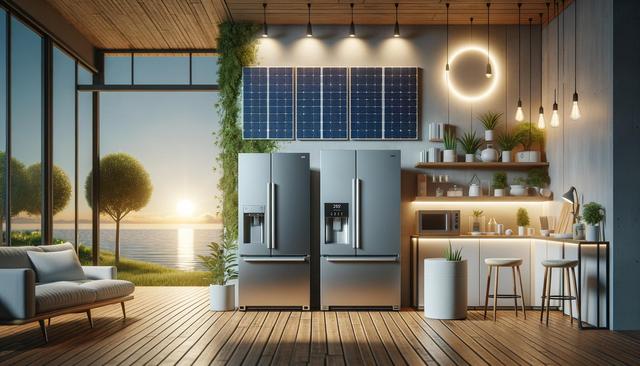Energy-Saving Appliances Worth the Investment
Energy-efficient appliances can lead to long-term savings and a reduced environmental impact.

Understanding the Value of Energy-Efficient Appliances
Energy-efficient appliances are designed to use less electricity or water while maintaining or improving performance. While the initial investment can be higher compared to traditional models, the long-term benefits often justify the cost. These appliances help reduce utility bills, support environmental sustainability, and can even increase the overall value of your home. For consumers looking to make smarter financial choices, energy-saving appliances are worth exploring for their lasting return on investment.
Many households are shifting towards more sustainable living, and upgrading old appliances is a practical step in that direction. Common energy-saving appliances include refrigerators, washing machines, dishwashers, air conditioners, and water heaters. These appliances often carry certifications or labels that indicate their efficiency, helping consumers make informed decisions. Over time, the reduction in energy usage translates to substantial cost savings, which adds up significantly over the lifespan of the appliance.
Refrigerators and Freezers: A Cool Way to Save
Among the appliances that consume the most energy in a household, refrigerators and freezers are near the top of the list. Older models tend to draw more power continuously, especially if they lack modern insulation or compressors. Upgrading to a newer, energy-efficient unit can cut electricity use dramatically over time. Features to look for include:
- Advanced compressors that adjust power based on cooling demand
- Better insulation to maintain consistent internal temperatures
- LED lighting instead of traditional bulbs
These features not only reduce energy usage but also contribute to better food preservation, reducing waste. While the upfront cost may be higher, the savings on your utility bill can be significant, making it one of the more logical choices for energy-efficient upgrades.
Washing Machines and Dishwashers: Clean and Efficient
Modern washing machines and dishwashers have come a long way in terms of technology and efficiency. Energy-efficient models use less water and electricity while offering better performance. Innovations like sensor-based wash cycles, improved water jets, and high-efficiency motors contribute to both lower consumption and better results. Benefits include:
- Lower water bills due to reduced usage
- Shorter cycle times with equal or better cleaning performance
- Gentler treatment of clothing and dishes, extending their lifespan
Additionally, front-loading washing machines tend to be more efficient than top-loading models. Investing in these appliances can appeal to eco-conscious homeowners who want to reduce their environmental footprint without sacrificing quality or convenience.
Heating and Cooling: Efficient Climate Control
Heating and cooling systems are some of the largest energy consumers in any household. Upgrading to energy-efficient options like heat pump systems, programmable thermostats, and high-efficiency air conditioners can result in noticeable savings. These systems regulate indoor temperatures more precisely and avoid energy waste by adjusting operation based on occupancy or time of day. Key upgrades to consider include:
- Heat pumps that provide both heating and cooling
- Smart thermostats for better temperature control and scheduling
- Efficient HVAC systems with variable-speed motors
Such improvements not only cut costs but also enhance indoor comfort and air quality. Over time, the investment pays off through lower monthly bills and longer-lasting systems that require fewer repairs or replacements.
Water Heaters and Small Appliances: Hidden Energy Savings
Water heaters are often overlooked when considering energy-saving upgrades, yet they represent a significant portion of household energy use. Tankless water heaters or those with better insulation and heat retention can reduce standby energy losses. Similarly, small appliances like microwaves, toasters, and coffee makers with automatic shut-off features or energy-saving modes can also contribute to overall efficiency. Consider these benefits:
- Consistent hot water supply with reduced energy waste
- Lower operational costs over time
- Increased control over energy use in day-to-day tasks
While small appliances may not individually save large amounts of energy, their collective impact can be meaningful, especially in energy-conscious households. Making thoughtful choices in these areas helps build a comprehensive strategy for energy efficiency at home.
Conclusion: Making the Smart Switch
Investing in energy-saving appliances is a practical decision for homeowners and renters alike who want to lower their utility costs and promote sustainable living. While the initial expense may be higher, the long-term benefits—such as reduced energy bills, less environmental impact, and improved home value—make the transition worthwhile. Whether you’re upgrading a single appliance or planning a full home renovation, prioritizing energy efficiency ensures your investment contributes to a more cost-effective and environmentally friendly lifestyle.